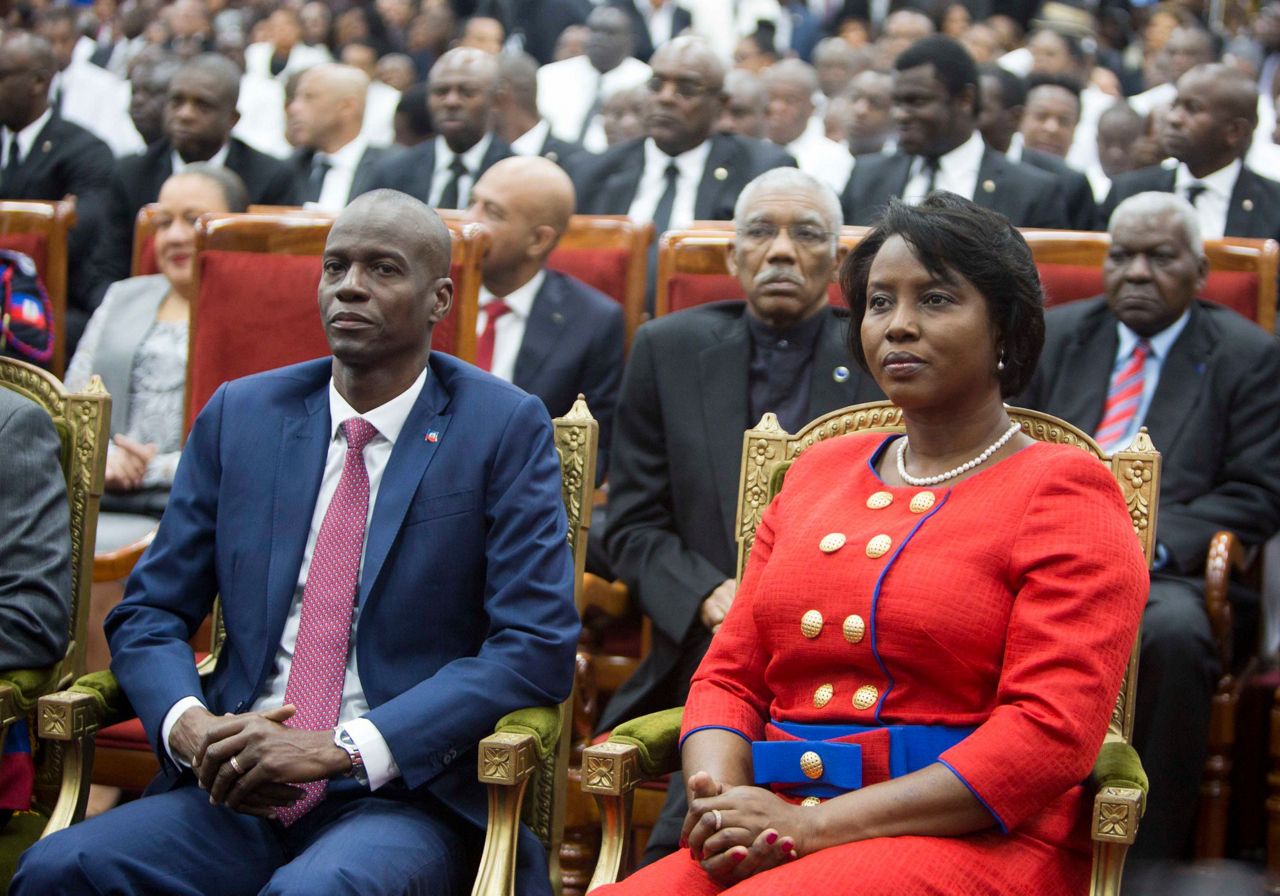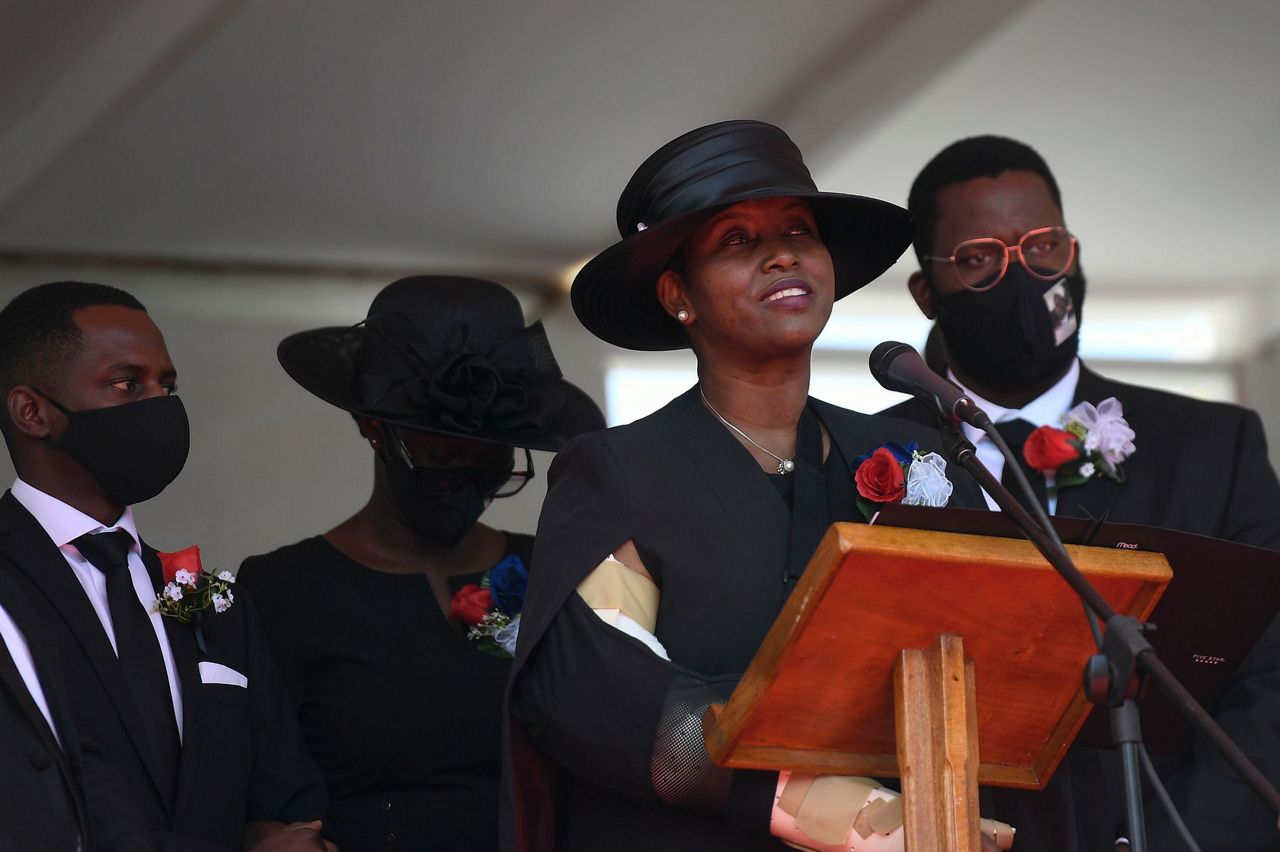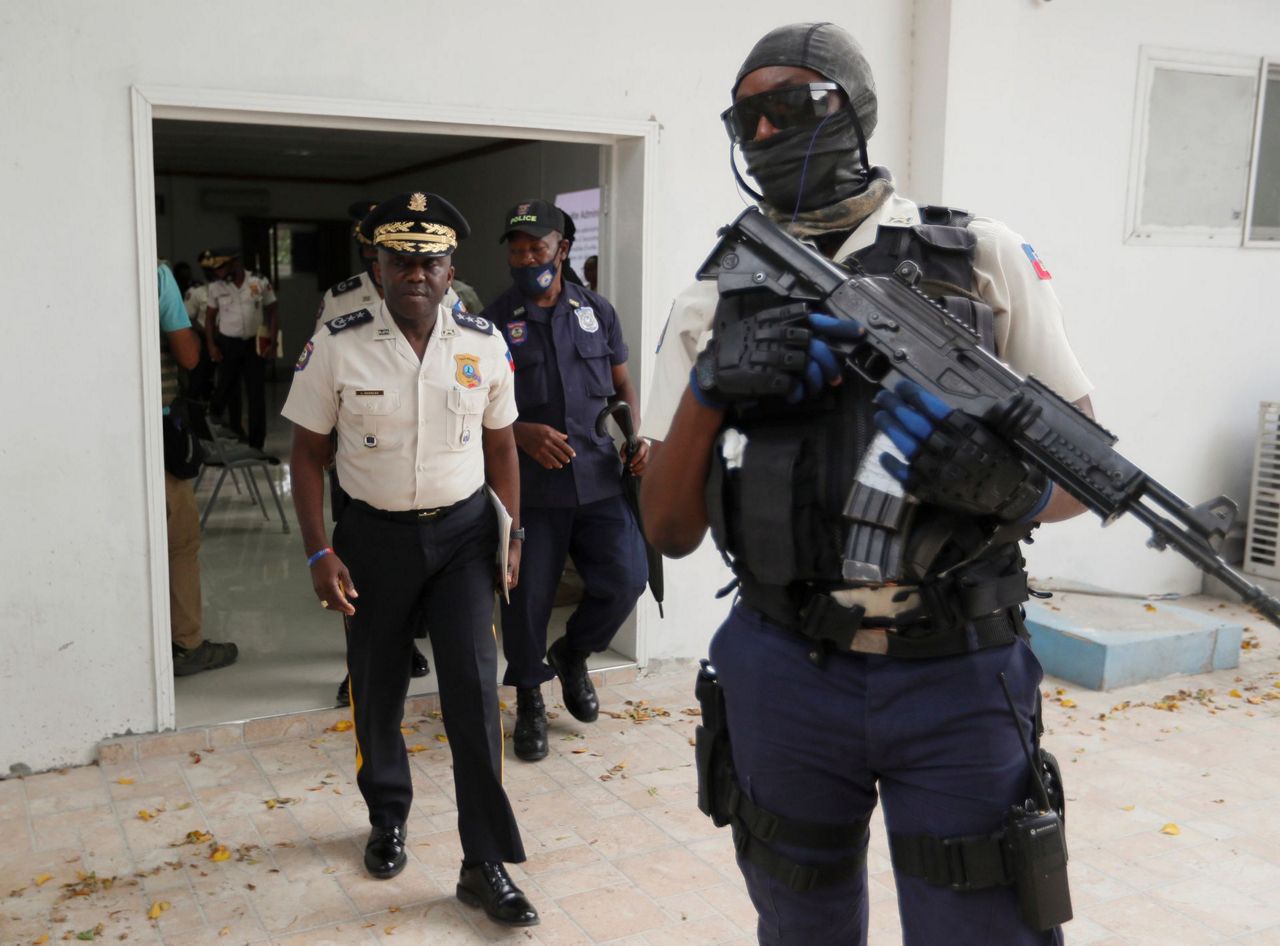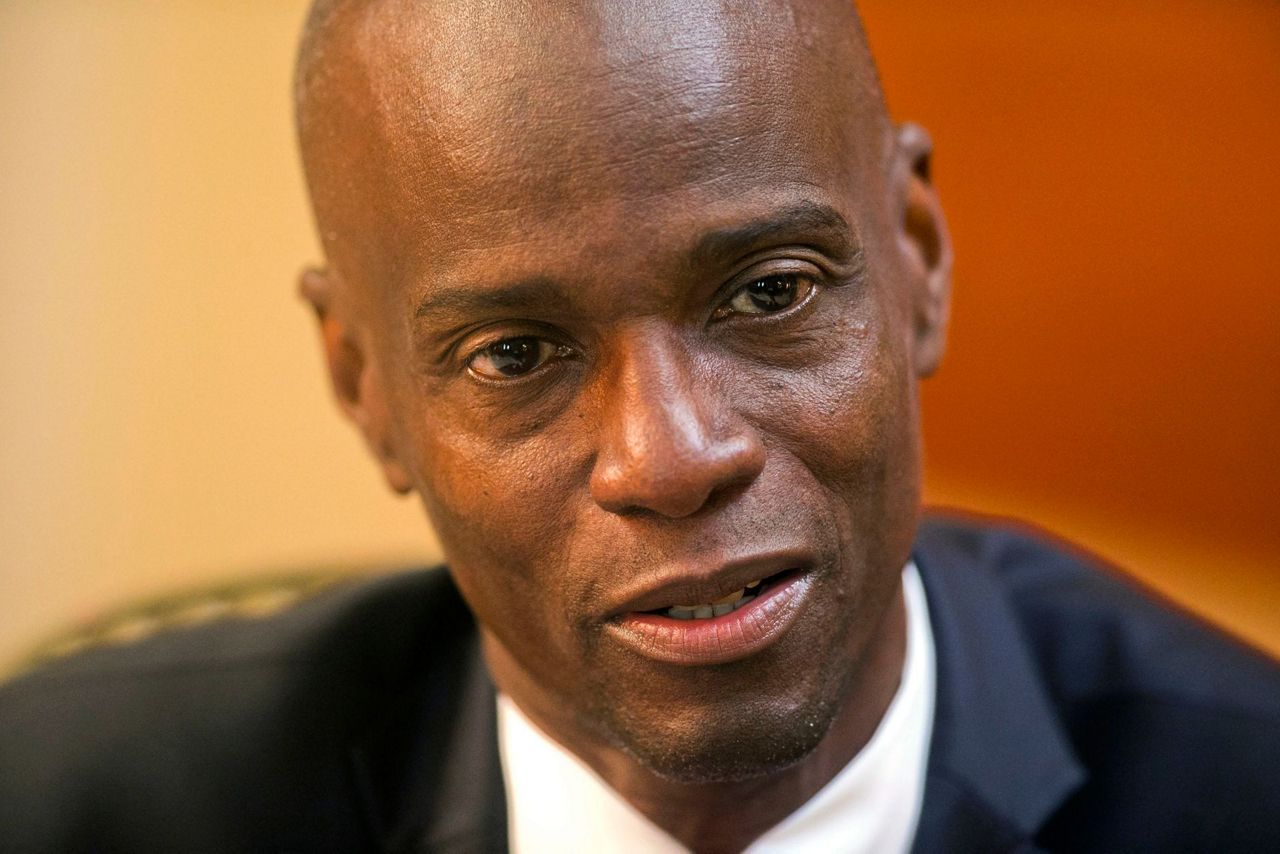SAN JUAN, Puerto Rico (AP) — A judge who investigated the 2021 assassination of Haitian President Jovenel Moïse has indicted some 50 suspects in the case, including the slain president's widow, the former prime minister and the former head of Haiti's national police force.
The long-awaited report was delayed in part by the high turnover of judges assigned to the case, with some resigning out of fear for their lives.
The fifth judge responsible for the investigation, Walther Wesser Voltaire, wrote the report detailing the indictments and noted that some people provided “statements riddled with contradictions,” including Moïse's widow, Martine Moïse, who was present when armed men burst into the couple's bedroom.
The judge also noted with amazement how President Moïse, "who was supposed to be the most protected figure in the country … was shot down in his room by attackers who did not face the slightest opposition or resistance.”
Here’s a look at some of the key questions raised by the judge’s report:
___
Experts have pointed out inconsistencies in Martine Moïse's account of what happened that night, and many have wondered how she survived such a brutal assault carried out by more than two dozen heavily armed assailants.
She was wounded in the attack and flown to a hospital in Miami but has since recovered.
The judge raised some of the same questions in his report, noting that her statements were “so tainted with contradictions that they leave something to be desired and discredit her.”
He noted that Martine Moïse failed to appear twice for interrogations, leading him to issue an arrest warrant for her in October.
The judge also stated that the former secretary general of the National Palace reported that Martine Moïse spent nearly five hours gathering unidentified “things” at the palace two days before the assassination.
Then, two days after the killing, she called to tell the palace official that “Jovenel didn’t do anything for us. You have to open the office."
The president told someone named Ti Klod "to create a council of ministers; he will hold elections in three months so I can become president, now we will have power,” she said.
Ti Klod is believed to be a reference to Claude Joseph, the former prime minister also indicted in the case. Joseph has accused Haiti's current prime minister of “weaponizing” the country's justice system and vowed to fight the indictment. Both he and Martine Moïse are accused of complicity and criminal association.
The judge also questioned Martine Moïse's statement that she took cover during the attack under the bed she shared with her husband, noting that not even a “giant rat” would fit in that space.
One of the main suspects in the slaying, Joseph Félix Badio, told the judge that Martine Moïse was part of a group that wanted to get rid of her husband “to monopolize power and satisfy their crude appetites,” according to the report.
A day after the report was leaked, Martine Moïse's attorney defended her.
“She has no motivation for this attack, and her inclusion is supposedly based on her imperfect memory of the most traumatic night of her life,” Florida-based attorney Paul Turner said.
Turner said in a statement Tuesday that Martine Moïse, her children and the people of Haiti were the victims of the assassination. He described the charges as “ridiculous and unjust.”
Turner rejected the report and the testimony against her.
“The Haitian government is deflecting attention away from the real culprits who bankrolled this attack, some of whom are still at large,” he said. “These trumped-up charges by a kangaroo court against political opponents are a Stalinesque move by a wannabe dictator.”
A spokesman for Prime Minister Ariel Henry did not immediately return a message seeking comment.
Among the suspects facing the most serious charges, including murder, is former Police Chief Léon Charles, who serves as Haiti’s permanent representative to the Organization of the American States. He could not be reached for comment. Associated Press journalists were unable to find contact information for Charles.
___
In Haiti, suspects who are indicted have the right to appeal, but it’s unclear how long that would take.
Haiti’s judicial system has been crumbling for years: Prosecutors regularly go on strike to demand higher salaries and better working conditions; a gang still controls part of a key court in the capital of Port-au-Prince; and corruption among judges and prosecutors is rampant.
“Haiti’s justice sector is really dysfunctional right now,” said Kristina Fried, an attorney with the Institute for Justice and Democracy in Haiti, a U.S.-based nonprofit.
She accused public officials of dismantling the system, which she said has been chronically neglected and underfunded.
“This all contributes to a culture of impunity in Haiti,” she said. “We’ve seen that in a lot of emblematic cases that have not seen any progress. The Moïse case is one of them.”
It’s extremely rare for Haitian authorities to arrest any high-ranking officials or well-known politicians. As of Tuesday afternoon, no high-profile arrests in the case had been reported in Haiti.
___
The judge indicted dozens of suspects, some of whom are already being prosecuted by U.S. authorities in Miami. Meanwhile, more than 40 other suspects have languished in jail in Haiti since the assassination, and none has yet faced a trial, raising concerns among human rights activists.
Despite the arrests, indictments and the judge’s detailed report, it’s still unclear who masterminded the attack. Some experts have said that information might never be known.
Copyright 2024 The Associated Press. All rights reserved. This material may not be published, broadcast, rewritten or redistributed without permission.







